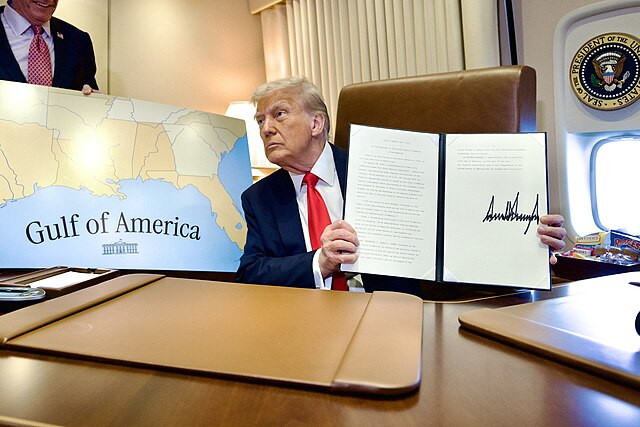Shares of Cognizant Technology Solutions fell more than 5% Friday after reports that President Donald Trump will impose a $100,000 application fee for H-1B visas, a sharp escalation in the administration's efforts to curb the use of foreign workers. The announcement sent ripples across the technology and outsourcing sectors, which rely heavily on the visa program to staff technical roles.
The White House is expected to release a proclamation as soon as Friday that would bar entry under the H-1B program unless the payment is made, according to a White House official familiar with the plan. The same proclamation will direct the Labor Secretary to revise prevailing-wage levels, aiming to restrict employers' ability to hire lower-paid foreign workers.
In a fact sheet reviewed by Bloomberg News, the White House said the use of foreign labor through H-1B visas is suppressing wages and creating a disincentive for Americans to enter STEM careers. It described the issue as a national security concern, framing the new fee as a way to "weed out abuses" and ensure only legitimate filings go forward.
The $100,000 fee would dwarf current charges. Today, companies pay $215 to register for the visa lottery and $780 to submit the I-129 petition for a non-immigrant worker. Officials have not clarified whether the new fee would replace or stack on top of these existing costs.
Tech firms are among the largest users of the program. Amazon received more than 10,000 H-1B approvals in 2025, while Microsoft and Meta each secured more than 5,000, according to U.S. Citizenship and Immigration Services data. Outsourcing firms also dominate the lottery by submitting thousands of entries, capturing nearly half of the 85,000 visas available each year.
India remains the biggest beneficiary, accounting for 71% of approvals last year, followed by China at nearly 12%. Any significant reduction in visa allocations or increase in costs could disrupt the flow of skilled labor to the U.S. and potentially force more companies to shift operations abroad.
Critics of the visa system argue that it has been exploited to undercut wages for American workers and displace domestic talent. Labor advocates have called for reforms to raise wages and tighten eligibility rules, while business groups warn that limiting visas could hurt innovation and slow economic growth.
The H-1B overhaul is part of a broader strategy by the Trump administration to raise immigration-related fees across the board, with revenue earmarked for detention centers, immigration enforcement hires, and expanded border wall construction.






